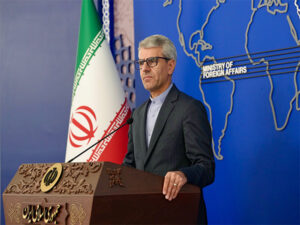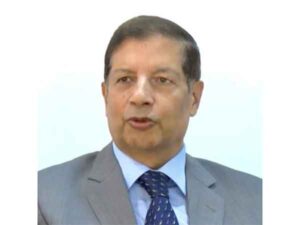Pakistan Bar Council demands formation of judicial commission of SC judges on meddling in judicial affairs
Islamabad, Apr 6 (PTI) Pakistan’s top lawyer’s watchdog has demanded a judicial commission comprising sitting Supreme Court judges to look into complaints about the alleged meddling by the powerful intelligence agencies in judicial affairs.
The Pakistan Bar Council (PBC) on Friday said the formation of a judicial commission was necessary for an impartial investigation, devoid of any external interference, which was crucial to finding the truth.
The demand came on a day when former Supreme Court Bar Association (SCBA) president Abid Shahid Zuberi also approached the apex court to become a party in the suo motu proceedings on the issue.
The PBC at its meeting, which was presided over by the council’s vice chairman Riazat Ali Sahar, also took notice of the demand for the resignation of Chief Justice of Pakistan Qazi Faez Isa and IHC Chief Justice Aamer Farooq and condemned the social media campaign against them.
In a resolution adopted at the meeting, the PBC stated that the trolling was uncalled for, as such demand amounted to strengthening the hands of those who wanted divisions in the judiciary.
Calling for their resignation would not only undermine the judiciary but also fail to resolve the existing issues, the PBC stated, adding that it would rather worsen the situation.
The meeting discussed in detail the issue of alleged interference by the intelligence agencies in judicial affairs in the wake of the March 25 letter written by six Islamabad High Court judges to the Supreme Judicial Council (SJC).
While the government constituted a one-man commission comprising retired Justice Tassaduq Jillani to probe the allegations, he recused himself from it.
Subsequently, a seven-judge SC bench took suo motu notice of the case. At its hearing, the CJP hinted at establishing a full-court bench to proceed with the matter.
In its resolution, the PBC urged the SC to decide the present suo motu case as expeditiously as possible. It stated the judges held the highest esteem in the nation, carrying significant responsibility for adjudicating cases and meticulously deliberating allegations before reaching verdicts.
According to the resolution, judges epitomise the legal system’s foundation, embodying independence and impartiality, free from political or external pressures to administer justice untainted by extraneous moral, internal or external influences.
When judges express concern through a written letter, it is a moment of great significance and concern to the independent working of the judicial system of Pakistan, the PBC pointed out.
To safeguard the law, Constitution and fundamental rights of citizens, a comprehensive investigation into the allegations was “not only justified but necessary”, the council asserted.
The PBC feared that the fact that judges raised the issue implied they had been “cornered” by the agencies, leading them to cry for assistance from the highest legal forum in the hierarchy of the judicial system.






